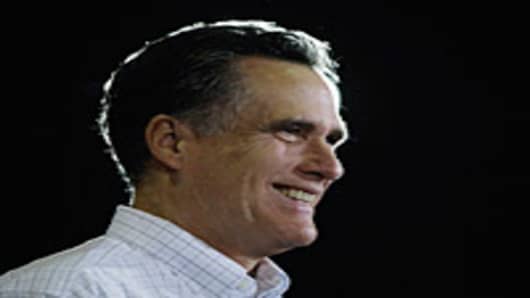The pile-on began just moments after Mitt Romney — a man easily worth more than $200 million — admitted Tuesday morning that he pays federal taxes at a rate of about 15 percent, far less than most middle-income families.
But could the timing actually be good for Mr. Romney?
Democrats pounced, gleeful at the prospect of portraying the leading Republican candidate as a direct beneficiary of tax policies that favor the wealthy over the middle class. They started a Twitter campaign to mock his reluctance to release his federal income tax returns. And they sent out more than a dozen e-mails citing his taxes.
“His tax plan would increase benefits for millionaires and billionaires,” said Eric Schneiderman, the attorney general of New York, on a conference call quickly organized by the Democratic National Committee. “I think it’s very important to understand his refusal to disclose the loopholes he’s using and the tax strategy he’s employed.”
And in case that was not enough, Mr. Romney offered some icing on the cake: an offhand remark that his income from paid speeches amounted to “not very much” money. The problem? In one recent year, he made $374,327.62 giving speeches — an amount vastly higher than the income of a typical family.
It was as if Mr. Romney was once again playing into the hands of President Obama’s political advisers, who believe that voters will not elect a wealthy, Wall Street Republican during a time of economic uncertainty.
Tuesday’s comments came on the heels of more than two weeks of attention — driven largely by Mr. Romney’s Republican rivals — focused on his role as a venture capitalist who bought and sold businesses, with sometimes dire consequences for workers.
And that followed Mr. Romney’s statement that he knows what its like to worry about getting a pink slip, and a comment, taken out of context by his critics, that he “likes to fire people.”
Taken together, the string of moments provided Democrats an opportunity to define Mr. Romney as out of touch with regular people, a creature of special interests and the embodiment of Mr. Obama’s argument that the wealthy need to do more to help the nation get out of its fiscal hole.


